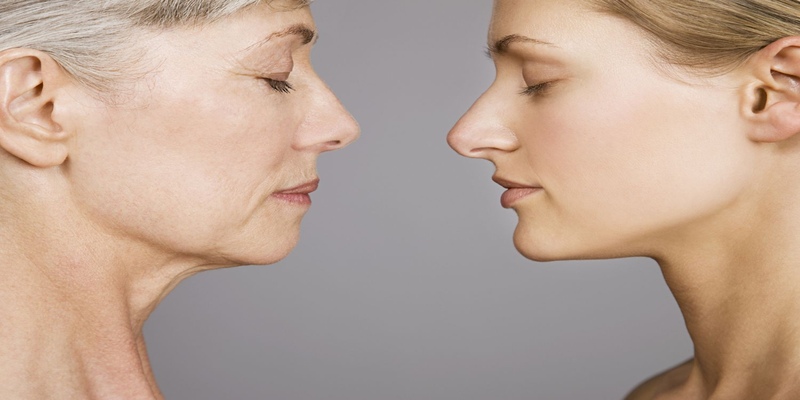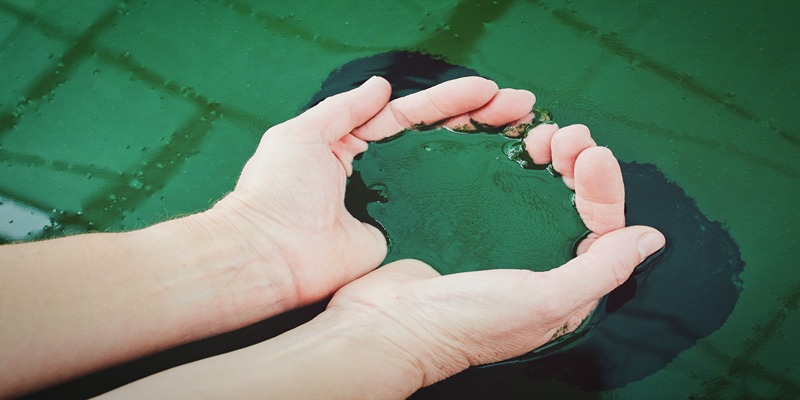The Impact of Hot Showers on Skin Health Explored
Mar 03, 2024 By Madison Evans
In this comprehensive exploration of the effects of hot showers on skin health, we unravel the intricate balance between hydration, temperature, and long-term skin well-being. Hot showers, a staple in many routines, are often the go-to solution for relaxation and warmth. However, the true impact of prolonged exposure to hot water on our skin might not be as benign as commonly believed. This article seeks to dissect the popular myths, scientific truths, and seeks a dermatologically sound middle ground for those unwilling to give up their steamy solace.
The Hot Shower Paradox
The paradox of hot showers begins with their immediate, comforting effects, juxtaposed against their not-so-comfortable long-term consequences for skin health. Initially, stepping into a steaming shower can feel like a therapeutic escape, providing a sense of warmth and relaxation that washes over the body. The heat from the water helps to relax muscles, soothe stiffness, and even offers a temporary relief from the cold. However, this initial comfort can be deceptive, as prolonged exposure to hot water strips the skin of its natural oils, leading to dryness, irritation, and a compromised skin barrier.
This disruption of the skins natural barrier is significant because it plays a crucial role in protecting our bodies from harmful bacteria, allergens, and environmental pollutants. Without this protective layer, the skin becomes more susceptible to infections, allergic reactions, and can even exacerbate conditions like eczema or psoriasis. The irony lies in the fact that while one seeks relief and cleanliness from a hot shower, they might inadvertently be inviting skin troubles.
Skin Hydration Myths
One common misconception is that hot showers enhance skin hydration. In reality, they can do quite the opposite.
The Hydration Illusion
Contrary to popular belief, hot showers may not be the hydration hero for your skin. While the warmth is comforting, the intense heat can have unintended consequences. It accelerates the evaporation of moisture from your skin, which, over time, can compromise its natural oils. Consequently, your skin may end up feeling dry, depleted of essential moisture, and more prone to dehydration. It's important to strike a balance in shower temperature to maintain skin health and hydration.
Moisturization Misunderstandings
Many people often believe that simply applying moisturizer post a hot shower can alleviate any dryness. While moisturizers do offer benefits, their efficacy diminishes on skin that has been excessively heated. The skin's barrier, when damaged by heat, can restrict the absorption of products, thereby reducing the moisturizer's effectiveness in restoring hydration levels.
Seeking Solutions
Discovering effective strategies to keep your skin hydrated after a shower goes beyond basic moisturization. It also entails making thoughtful adjustments to your shower routine, such as lowering the temperature and shortening the duration, to help maintain the skin's natural moisture balance. By being mindful of these habits, you can nurture your skin's health and radiance in the long run.
The Temperature Dilemma
Finding the optimal water temperature for showering becomes a crucial concern as we aim to balance hygiene and relaxation with skin health. This part examines the scientific recommendations on water temperature and its effects on the skin.
Warm vs. Hot Showers
While hot showers can be deeply relaxing, turning down the temperature to a warm setting can be a game-changer for skin health. The distinction between hot and warm showers is crucial; hot water can reach temperatures well above 105F (40C), whereas warm water sits comfortably between 98F to 104F (36.5C to 40C). At these lower temperatures, the skin is less likely to be stripped of its essential oils, preserving the integrity of the skin's natural barrier.
Warm showers ensure that the skin maintains its moisture balance, reducing the risk of dryness and irritation. Scientific studies support the notion that warm showers can improve skin hydration levels without the harmful effects associated with high temperatures. This moderation in shower temperature can significantly mitigate the long-term adverse effects on skin health, making it an advisable practice for those seeking to maintain their skin's health while still enjoying the comforting embrace of a shower.
Seeking the Middle Ground
Striking a balance between the soothing allure of hot showers and the preservation of skin health requires practical, achievable strategies. Integrating a middle path involves adopting shower habits that offer physical relief without compromising the skin's protective barrier. One effective approach is to limit shower duration, ideally keeping it under 10 minutes. This minimizes exposure to hot water, reducing the risk of skin dehydration and irritation.
Applying a pre-shower oil can create a protective layer on the skin, safeguarding it from the stripping effects of hot water. Post-shower, it's crucial to lock in moisture by applying a hydrating moisturizer or body oil while the skin is still damp. This practice not only compensates for any moisture loss but also helps in repairing the skins barrier. By mindfully adjusting these aspects of our shower routine, we can enjoy the comfort of warm showers while nurturing our skins health and resilience.
Long-Term Effects Unveiled
While the immediate effects of adjusting our shower habits may seem minor, the long-term benefits for skin health are substantial. Over time, a consistent routine that prioritizes warm showers and proper skin care post-exposure can lead to significant improvements in skin texture, hydration, and overall health. Regularly opting for a less intense shower temperature protects the skin's natural oils and barrier function, reducing the incidence of dry, irritated, or inflamed skin.
This practice can ameliorate symptoms for those with sensitive skin or skin conditions like eczema, who often experience exacerbation with hot water exposure. Beyond the physical advantages, there's a psychological benefit in nurturing ones body with kindness and care, promoting a healthier relationship with our skin. Ultimately, the choice to moderate shower temperature and uphold diligent post-shower care is an investment in our skin's long-term vitality, proving that small habits can lead to profound health dividends.
Conclusion
The quest for healthy skin amidst the comfort of hot showers reveals a deeper understanding of the delicate balance required in our daily routines. The warmth of a shower may offer temporary solace, but it's the cooler, more temperate waters that harbor the key to sustained skin health. By adjusting our habitsopting for warm showers, limiting their duration, and adopting diligent post-shower skincare practiceswe not only protect our skin's natural barriers but also enhance its hydration and resilience. This mindful approach to bathing transcends mere cleanliness, evolving into a holistic ritual of self-care that promises long-term benefits for our skin.

Top 5 Anti-Ageing Concerns and Signs of Ageing - How To Address Them

Beginning Marathon Journey: A Comprehensive Guide for Beginners

Understanding Prediabetes: Its Importance and Impact on Your Health

Mastering Wide-Grip Pullups: Tips, Benefits, and Technique

The Healthiest 6 Frozen Meals Recommended by a Dietician

Why Does Hip Mobility Matter and How Can You Boost It?

All You Need to Know About 5 Best Single-Dumbbell Exercises for Building Explosive Strength


